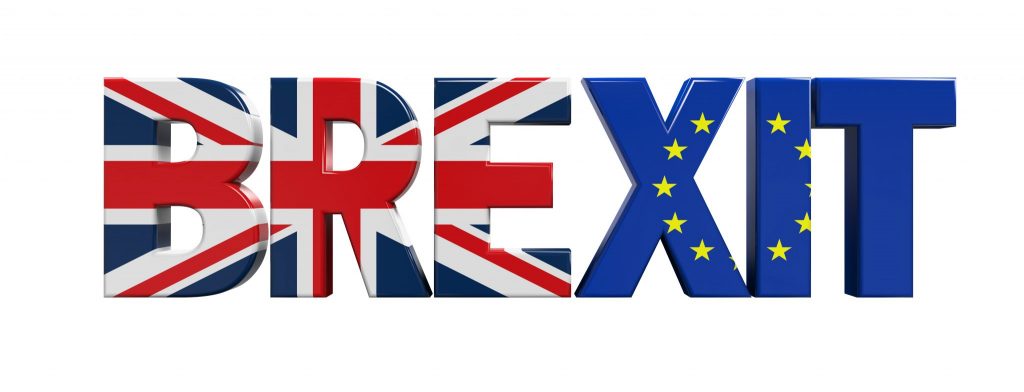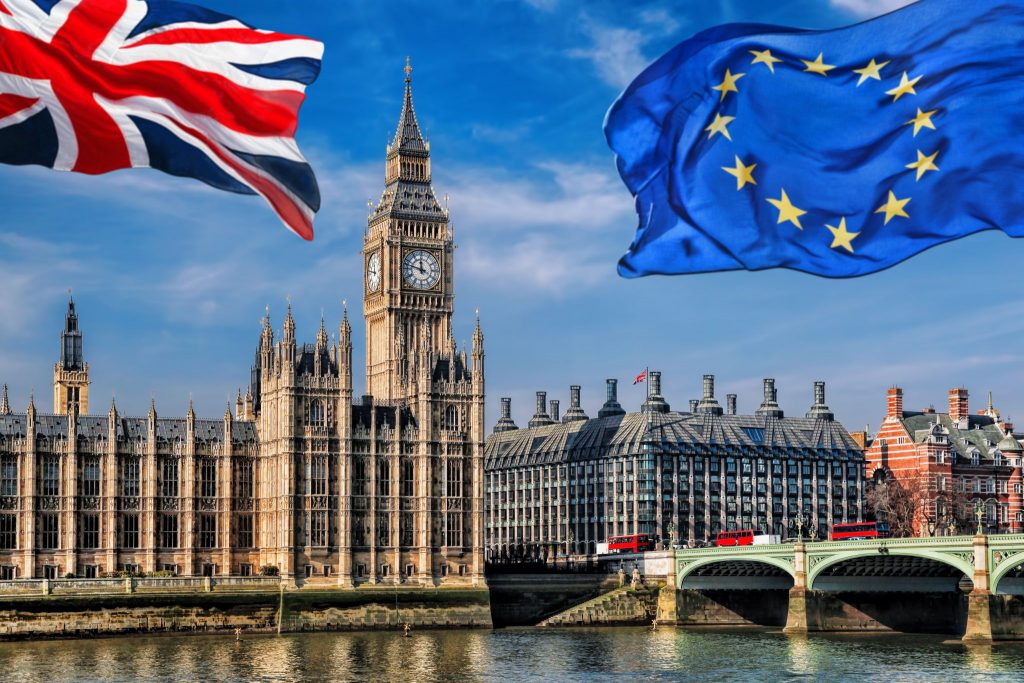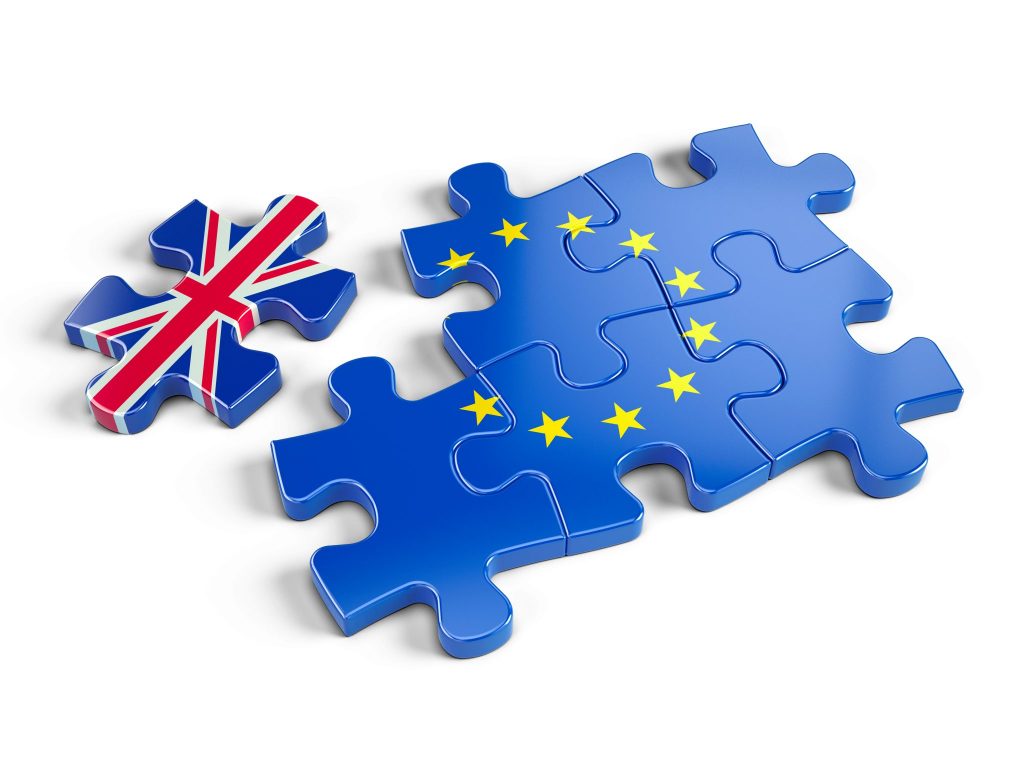The European Union’s General Data Protection Regulation (GDPR) isn’t the only thing that’s been worrying tech companies recently. Also looming on the horizon is the specter of Brexit (which is short for the British exit from the European Union). And while North American tech giants and large multinationals have dealt with the introduction of GDPR legislation pretty well, the uncertainties surrounding how Brexit will work out has made it difficult for many companies to prepare strategies and plans for handling an event that still has many unknowns and may have an even greater impact on their day-to-day operations than GDPR has had.
To help untangle the mess that Brexit may portend for tech companies, I talked recently with Shane Nolan, who is senior vice president of technology, consumer and business services at IDA Ireland, the agency that attracts and retains foreign, direct investments into Ireland. Shane leads a team that helps the world’s top Internet, consumer products, and professional services companies globalize in the Irish market. Before coming to IDA in 2003, Shane served as business development executive for a number of Irish telecoms and application development startups.
MITCH: Thanks, Shane for agreeing to let me interview you about how tech companies with customers in Europe will need to prepare for Brexit, which is now only a few months away. Let’s start with a money question: How much do U.S. tech companies like those in Silicon Valley stand to lose if they have a large base of their customers in Europe and don’t take any concrete steps to prepare for what may happen in their marketplace when Brexit occurs?
SHANE: Large companies like Pfizer have come out to say they are in danger of losing $100 million due to Brexit. In the absence of a deal after March 29 next year and the uncertainty over tariffs, U.S. tech companies selling into Europe from the UK may not know what tariffs or taxes they would have to pay. Uncertainty is costly and added to this U.S. companies will have to make sure they have all the legal and tax regulations in place.
If you’re looking to build an EU base, you need to have an EU base that will be in the EU post-Brexit. You will potentially also need a UK hub. Based on our current feeling as to where the negotiations are going, you cannot do both from the UK post-Brexit.
MITCH: Can you identify some of the specific issues that tech companies need to work through to avoid having their businesses disrupted by Brexit? I’m thinking, for example, of matters like taxes, tariffs and the free flow of talent around the EU.

SHANE: In terms of tariffs, if you look at the UK proposal in terms of the deal that they’re looking for post-Brexit, there’s no mention of services. Most technology offerings now, because of SAAS platforms, are essentially service offerings. Therefore, there’s no provision for any common trade area around services post-Brexit.
It then becomes a case of, what’s going to happen to tariffs for services? Nobody quite knows. When it defaults, World Trade Organization tariffs, which are the fallback position when there’s no bilateral agreement between nations or between markets, can go from low-single digits all the way up to 70 percent on some services. There’s a huge amount of uncertainty there.
Then, in terms of the free movement of labor within the European Union and EEA countries, there is uncertainty as to whether the UK will be granted equivalence post-Brexit. The other thing that we’re seeing at a practical level comes from chatting with recruiters based in the UK. They’ve seen a massive drop off in the number of European candidates applying for roles in the UK at the moment, post-Brexit. With all the uncertainty, you’re seeing a talent squeeze.
Then, if you are in an industry or sector where you’re relying on very tangible EU regulations to sell into the EU, you’re relying on getting regulatory approval. If the agency that gives you approval is in the UK, there’s no guarantee that that regulatory approval will be recognized post-Brexit because the UK may no longer get equivalence as a regulator for certain things.
The big question mark is over GDPR. Will the UK data protection regulator be granted equivalence by the EU as a recognized and credible regulator that EU jurisdictions are comfortable with?
MITCH: Are the U.S. tech companies you’ve talked to taking all this seriously? Or are they simply hoping that somehow everything will get worked out at the higher political level by the UK and EU?
SHANE: It’s a mixture. I think some hope it will get sorted out. Others are planning for what looks like the likely scenario, that Brexit is definitely going to happen and the deal may not be positive for the UK or may not be what everybody hopes it is. They’re planning for a worst-case scenario.
MITCH: Which particular sectors are planning for it, and which particular sectors aren’t?
SHANE: Financial services are the ones that have had to plan soonest. As they find a new regulatory location in order to maintain access to the EU market, that process of reregulation can take up to 18 months. Right now in Ireland, we have a pipeline of probably 100 multinational financial institutions that are applying for regulatory approval, and for Ireland to be their EU hub or their regulated location so they can continue offering services in Europe. They’re moving quickest because they’ve had no choice.
Some tech firms are also moving. Those that have large-scale datacenter operations, or are accessing EU citizen data from the UK, are starting to migrate datacenter operations. We’ve got a few companies in what’s called the e-discovery space, which is part of legal services, moving activity to Ireland for the EU.

Other firms are also looking to fragment out their EU hosting infrastructure from the UK into Ireland. For the companies we’re speaking with, the traditional trajectory for those coming to Europe for the very first time would involve opening a UK office initially because it’s the largest English-speaking market in Europe. What we’re seeing now is they’re putting offices into Ireland in the first instance and may put something smaller into the UK. They’re seeing the UK as a very separate market to the EU.
MITCH: Is it only the very large U.S. tech companies like Facebook and Google that are facing serious exposure to this issue? Or are smaller companies or even small businesses facing some degree of risk if they don’t take steps now to prepare their businesses for Brexit?
SHANE: Brexit has no filter for size. Essentially, there are a number of smaller tech companies that we’re chatting with that would have decided to drop anchor in the UK to build their European business from there. But they realized that there are huge uncertainties surrounding whether they will be able to access EU markets from the UK after March 29 next year.
They’re having to keep what would have been their UK team and put their European or EU team somewhere else. For a small company that’s looking at 20 people to run their European operations in total, why not keep two or three in the UK and put the rest into Ireland?
They’re choosing Ireland because the transition from the UK to Ireland is a pretty straightforward, common law environment and English speaking. A lot of legislation is the same. For US companies, culturally Ireland is a pretty straightforward interface into the EU market.
MITCH: Can you give us any specific examples of what tech companies have been doing to minimize or mitigate the risks they face from different Brexit scenarios?
SHANE: Some companies are moving their datacenter operations–particularly the component of their datacenter operations that looks after EU customers — out of the UK. Some are deciding to become regulated for GDPR or pick their place of regulation. They’re choosing that to be Ireland rather than the UK.
Because the negotiations have taken many twists and turns, we’re suggesting that companies prepare for “hard Brexit” and choose a location within the EU to build their European business. — Shane Nolan
They realize that even though the UK has transposed GDPR into UK law, by the end of March next year there’ll be no guarantee that the UK data protection regulator will be seen as an equivalent regulator to their European counterparts. Those are the two big moves we’re seeing at the moment. We’re seeing datacenter moves. We’re seeing places of regulation for data protection move. Then in some instances, we’re seeing Brexit contingency plans where they’re looking at Ireland to grow their European team and keep the UK team separate.
MITCH: Is there any agency or organization that can help tech companies here in North America prepare for Brexit?
SHANE: In chatting to folks who are already international, we’re finding that within the U.S., they’re aware of it. Folks who are about to go international are not so aware of it. Ireland is in a very unique position in the Brexit negotiations. We have unique insights into what way things are going to play out.
A lot of companies that are about to embark on international expansion into Europe are relying on IDA Ireland because we’re a corporate entity with good links into our diplomatic corps that are in our Department of Foreign Affairs and part of the negotiations. Bearing in mind that there’s still a couple of weeks of negotiation left to go, they’re eager to get our perspective on how we think this is going to play out.
MITCH: I’ve been following the news on the Brexit negotiations, and while for a long time it’s been mostly negative and has assumed a worst-case “hard Brexit” scenario as the most likely outcome, in recent weeks it appears that some degree of optimism has been expressed by EU negotiators. What do you yourself think is the most likely outcome of the Brexit talks, and what outcomes would be best and worst from the perspective of most U.S. tech companies?

SHANE: Technology offerings, particularly software, are mostly deemed to be services. The big challenge is that even if there is a soft Brexit and the UK government gets what it asked for, there are no provisions for services. Instead, the UK government’s Chequers proposal is very much focused on products and biased in favor of protecting UK manufacturers and UK agriculture producers.
There’s an assumption that a soft Brexit won’t have any negative effect. But we have to consider that services represent 70 percent to 80 percent of the UK economy, and all the uncertainty around the status of services post-Brexit and tariffs leaves us wondering which WTO tariffs might apply to the particular service. Depending on the tariffs, it could wipe out all of your margins.
MITCH: Is there anything else you would like to add as the last word for us on this subject?
SHANE: Because the negotiations have taken many twists and turns, we’re suggesting that companies prepare for hard Brexit and choose a location within the EU to build their European business. Ireland is a very, very strong alternative to the UK post-Brexit. We’re a straightforward landing point into the UK market because our culture, language, and legal system interface well into the US. The IDA has the language capability and a 50-year track record of helping US companies build their European business. We’re equally attractive and equally, operationally beneficial. And we’ll make sure that whatever downside might come out of Brexit, the companies are protected.
MITCH: Shane, thanks very much for giving us some of your valuable time!
SHANE: You’re welcome. Thank you for tackling this important topic.
Featured image: Shutterstock



